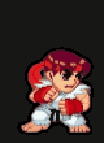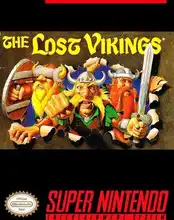Remember that feeling? The one where you're stuck on a screen, scratching your head at a seemingly impossible obstacle, only to have the solution click just as you nail a pixel-perfect jump? That, my friends, is the essence of Puzzle-Platform games. It's a glorious fusion, demanding both nimble fingers and a sharp mind, a genre that has delivered countless hours of satisfying challenge across gaming history.
For us retro enthusiasts, this blend feels particularly potent. Many of our early gaming memories involve navigating tricky levels filled with hazards, but the games that truly stuck with us often had a little something extra – a door that only opened when you figured out a sequence, an enemy that needed a specific interaction, or an environment that changed based on a clever trick. These weren't just platformers; they were brain teasers in disguise.
What Makes a Puzzle-Platformer Tick?
At its core, the genre is exactly what it says on the tin: it takes the core mechanics of platforming (running, jumping, climbing, avoiding falls) and weaves them together with puzzle elements. This isn't just about finding a key to open a door. It's about using the environment, interacting with objects, understanding unique character abilities, or even manipulating the game world itself to overcome obstacles that simple movement can't solve alone.
Think about it:
- Platforming challenges: Jumps over pits, dodging spikes, navigating moving platforms.
- Puzzle challenges: Figuring out how to activate a switch, using physics to move objects, timing actions perfectly, utilizing a special power, or interacting with enemies in non-standard ways.
The best Puzzle-Platform games make these two elements feel inseparable. The solution to a puzzle often requires a platforming feat, and successful platforming might depend on solving a small environmental riddle first.
From Arcade Cabinets to Indie Darlings: A Genre's Journey
While the term "Puzzle-Platformer" might feel more modern, the roots run deep into the arcade era. Consider classics like Bubble Bobble. Sure, it's an action game, but each single-screen level is a self-contained puzzle. How do you trap all the enemies? Which bubble do you pop first? How do you use the level layout and your bubble ability to your advantage? It's platforming, yes, but layered heavily with strategic thinking.
As gaming evolved, so did this blend. We saw games that leaned more heavily into the puzzle side while still requiring precise movement, and others that used unique mechanics as the basis for both platforming and puzzles. The indie boom of the late 2000s and beyond really saw the genre flourish, with titles like Braid (time manipulation) and Fez (world rotation) becoming touchstones, showcasing how a single, innovative mechanic could drive both gameplay pillars. Even modern cinematic adventures like Planet of Lana utilize character interactions and environmental elements as core puzzle mechanics within a platforming framework.
The beauty is that the core concept remains: using your brain and your thumbs (or keyboard) to progress.
Why We Keep Coming Back
For retro gamers, the appeal is multifaceted:
- Satisfying "Aha!" Moments: There's a unique joy in finally cracking a puzzle you've been stuck on, especially when it immediately leads into a challenging platforming sequence you now feel ready for.
- Variety: The genre allows for incredible creativity. One game might have you manipulating gravity, another might involve controlling multiple characters, and another might be all about precise timing and environmental interaction.
- Atmosphere and Story: Because the gameplay often forces you to slow down and observe, Puzzle-Platform games are fantastic vehicles for atmosphere and subtle storytelling. Think of the lonely, evocative worlds many indie titles create, or the simple, charming loops of arcade classics.
- Accessible Yet Deep: Many Puzzle-Platform games start with simple mechanics but build complexity gradually, offering a gentle learning curve that eventually leads to truly challenging scenarios.
Finding and Playing Classic Puzzle-Platformers Today
Ready to dive back into some retro or retro-inspired Puzzle-Platform games? The good news is many classics and modern throwbacks are readily available:
- GOG.com (Good Old Games): A treasure trove of DRM-free classic PC titles. You can often find older platformers and puzzle games here that fit the bill.
- Archive.org: The Internet Archive hosts tons of playable classic DOS games right in your browser, often including early examples that blended genres. Look for platformers with distinct puzzle mechanics!
- Emulators & DOSBox: For titles not commercially available, emulation remains a popular way to revisit old systems and play games like Bubble Bobble or lesser-known gems.
Whether you're revisiting a pixelated favorite or discovering a critically acclaimed indie title, the core appeal of Puzzle-Platform games endures. They challenge us in unique ways, proving that sometimes, the best way forward isn't just a quick jump, but a moment of thoughtful reflection.
Frequently Asked Questions
Q: What's the main difference between a platformer and a Puzzle-Platformer? A: While pure platformers focus primarily on movement skills and navigating treacherous terrain, Puzzle-Platformers integrate significant puzzle-solving elements that require logical thinking or unique mechanic usage in addition to platforming prowess to progress.
Q: Are there any classic retro examples of this genre? A: Absolutely! While not always strictly labeled as such at the time, games like Bubble Bobble, Lode Runner (with its digging mechanics as puzzles), and many early adventure-platformers on systems like the Amiga or DOS incorporated strong puzzle elements alongside platforming.
Q: What makes a unique mechanic important in these games? A: A unique mechanic (like time control, color switching, or specific character abilities) often serves as the foundation for both the puzzles and the platforming challenges, creating a cohesive and innovative gameplay experience that feels distinct from other games.
Q: Where can I find modern Puzzle-Platform games with a retro feel? A: Many indie developers create games inspired by retro aesthetics and gameplay loops. Check out platforms like Steam, GOG, or itch.io and look for titles tagged with "puzzle platformer" or "retro platformer."

